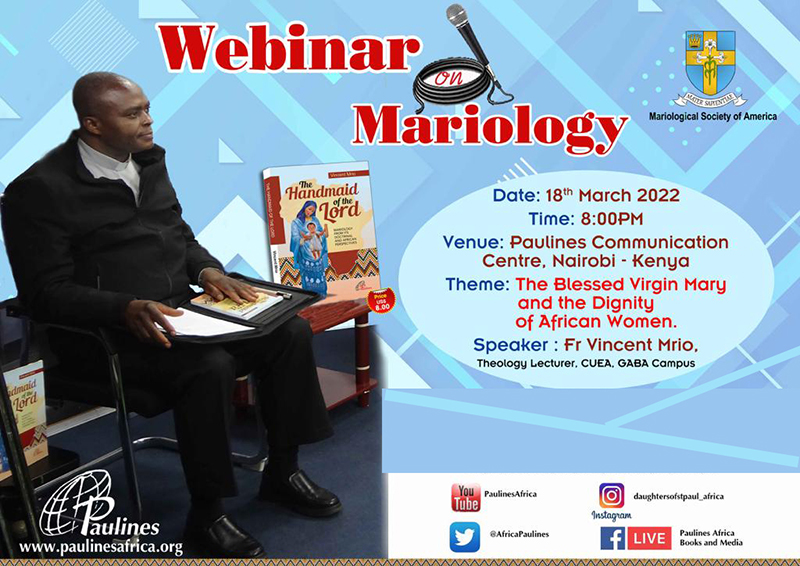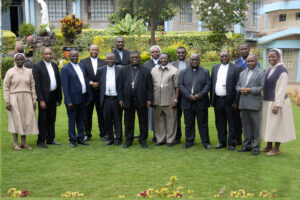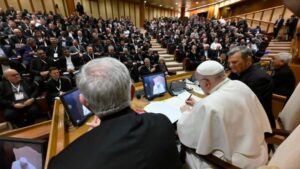CUEA: African Theologian Focuses on Contextual Perspective of Mary as a Mediator

Sr. Jecinter Antoinette Okoth, FSSA
Months after the author of the book “The Handmaid of the Lord: Mariology from its Doctrinal and African Perspectives,” focusing on Mary’s role in salvation history, Fr. Vincent Mrio presents Mary in the life of an African woman as a mediator and a model.
During a Webinar organized by the Mariological Society of America (MSA) a Catholic theological association dedicated to studying and making known the role of the Blessed Virgin Mary in the Mystery of Christ, in the Church and in the history of salvation, Fr. Mrio a Kenya-based Tanzanian cleric said in relation to the role of Mary as a mediator, “The mediatorial office of Mary, the New Eve, is replicated in the African mother’s gentle efforts to ameliorate disputes.”
He narrated to online participants on Friday, March 18, that Mary from the perspective of the role of an African woman alleviates “Disputes between an overly authoritarian father and his young children, between the children themselves, between relatives, or between those outside the extended family and those within it.”
With wise counsel, often coaxed by well-prepared meals, says Fr. Mrio a lecturer of Dogmatic Theology at the Catholic University of Eastern Africa (CUEA) Eldoret Campus “she (African woman) applies her gifts of intuition and personal familiarity to bring those at variance to a peaceful resolution. The African mother is a skilled mediator.”
Focusing on Mary as part of African society, the former rector of St. Charles Lwanga Major Seminary in Dar es Salaam, Tanzania underscores that through Mary’s “divine maternal love, she continues to care for the earthly family, the pilgrim church in Africa.”
By drawing inspiration from Post-synodal Apostolic Exhortation: Ecclessia in Africa, Fr. Mrio emphasizes Mary and dignity of African women saying, “For the dignity of the African woman in relation to her role in the Church and in society, the Church in Africa which is the Bride of the glorified Christ and the symbol of Mary’s maternal love, should deplore and condemn, “to the extent that they are still found in some African societies, all ‘the customs and practices which deprive women of their rights and the respect due to them.’”
He notes that as an elderly woman is highly appreciated and respected in the African society because of her role in the community, “Mary must be viewed in her Christian context as “full of grace” imparting virtues to the hearts of people (and) for an African woman of either type of cultures, Mary, the Mother of Jesus is always the icon of perfect virtue and a woman of integrity. Her dignity is unique and immeasurable.”
“So, whenever we approach the Blessed Mary in prayer, our expectations are beyond that of being intercessor. Coming to Mary the mother of Jesus is like attending the school of faith, hope, love, obedience, humility and righteousness. Her dignity inspires us,” alumnus of Pontifical Gregorian University, Rome, said adding that, “It mostly inspires the majority of African women who in many ways face all sorts of hardship. She is a teacher of love which surpasses all theological virtues.”
He advises African women during the Friday online event, that with special focus on Mary, they should “learn how to respond to God’s call with true love and faith since Mary’s dignity is recognized in her relationship with the triune God.”


